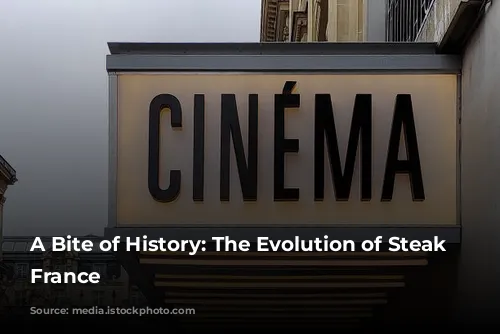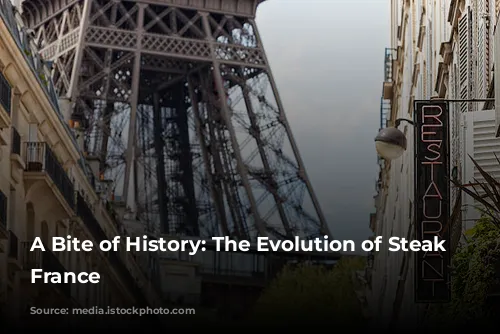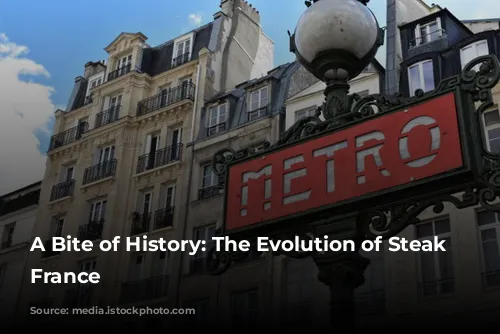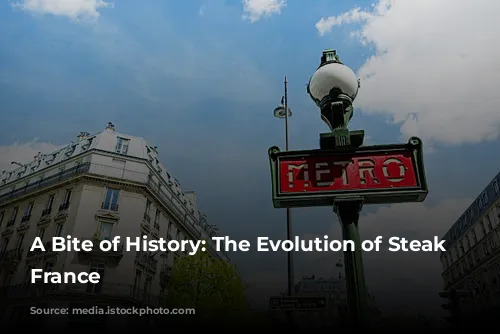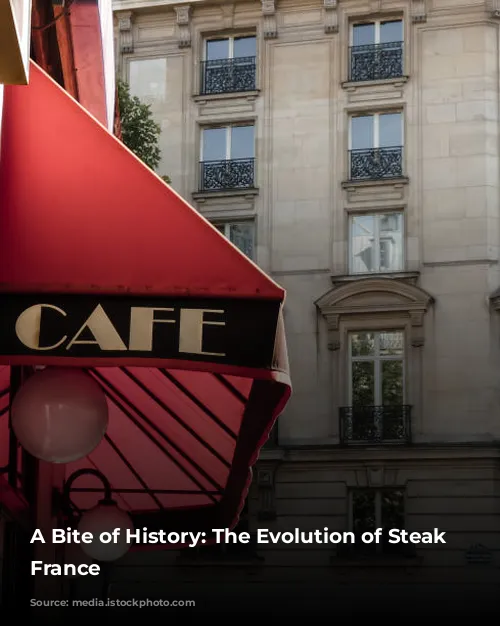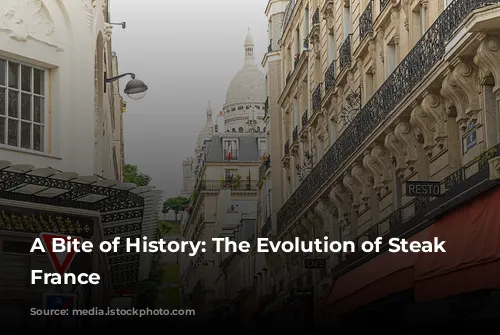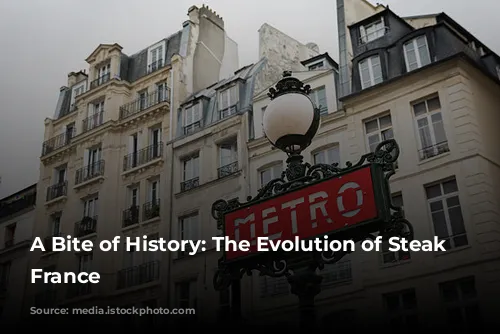The French culinary landscape has undergone a fascinating transformation when it comes to steak. Imagine a world where boiled meat was considered the pinnacle of sophistication. That was the reality in 18th-century France, as famously documented by Diderot’s Encyclopedia. However, the 19th century witnessed a shift in taste, with Brillat-Savarin famously dismissing boiled meat as “nothing more than flesh minus its juice.” The arrival of the steak from England after 1815, as recounted by Alexandre Dumas, marked a turning point.
The steak swiftly rose to become a symbol of French prosperity during the “Trente Glorieuses” (Thirty Glorious Years), a period of economic boom after World War II. Roland Barthes, writing in 1957, described it as part of the “same blood mythology as wine.” Just three years later, the French government launched its iconic slogan: “Follow the Beef.”
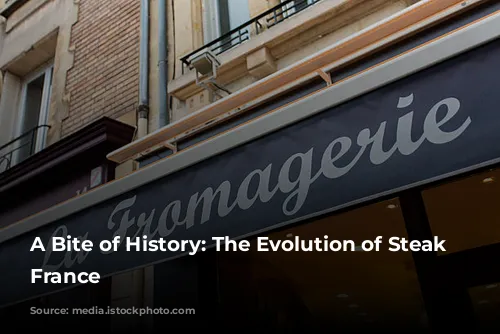
The Illusion of Choice: A Critical Look at Modern Steak Consumption
The widespread availability of steak presented a deceptive illusion. Only about 30% of a cow carcass actually consists of the premium cuts suitable for grilling. To satisfy the burgeoning demand, less desirable cuts were sold at a loss abroad, while expensive cuts were imported to meet domestic needs. This imbalance continues to this day, with supermarkets offering a vast selection of pre-cut steaks, giving consumers a false sense of choice.
Adding to the problem, modern beef production often involves intensive farming practices. Cows are raised in confined spaces, fed a diet of cereals, and often become “too old, too lean, and too tough,” as pointed out by Yves-Marie Le Bourdonnec and Hugo Desnoyers, two prominent figures in the French butchery industry.

Rethinking Steak: A Focus on Quality and Sustainability
The experts advocate for a return to traditional farming methods, favoring mixed breeds like the Normande, Salers, and Blonde d’Aquitaine. These breeds graze freely on pastureland, resulting in healthier, more flavorful meat. This view is shared by a select group of ten trusted butchers across Paris, who prioritize quality and sustainability.

Paris’s Butcher Shops: A Celebration of Flavor and Tradition
These dedicated professionals are committed to authenticity, offering a wide range of locally sourced products. They stand out for their unwavering commitment to quality, sourcing meat from small, independent farms, and often showcasing heritage breeds.
These butcher shops are not just places to buy meat, but rather hubs of knowledge and tradition. Their expertise is evident in their ability to select the right cuts for specific dishes, and their passion for traditional techniques translates into exceptional flavors.

Beyond the Steak: A Growing Trend for Sustainable Meat
The trend towards responsible meat consumption is gaining momentum. Several establishments are going beyond simply selling steak, offering a broader selection of meats, including lamb, poultry, and pork, all sourced from ethical farms.
These butcher shops are actively promoting sustainable farming practices, encouraging customers to appreciate the entire animal, and minimizing waste. They also provide educational workshops on meat preparation and cooking techniques, empowering consumers to make informed choices.
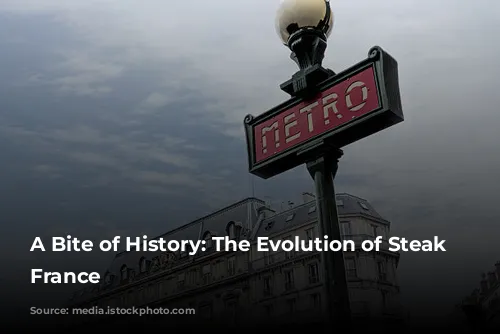
A New Generation of Steak Lovers: Embracing Quality and Transparency
A growing number of young butchers are revolutionizing the industry, championing transparency and traceability. They are committed to building relationships with their suppliers, ensuring fair prices for farmers, and providing detailed information about the origin and breeding practices of their meat.
This new generation is also embracing traditional methods, such as dry-aging, which enhances the flavor and tenderness of the meat. They are also focusing on value-added products such as charcuterie, sausages, and pâté, offering a more comprehensive experience for the meat-loving consumer.

The Future of Steak in France: A Promising Outlook
The future of steak in France is bright, with a growing awareness of quality, sustainability, and animal welfare. Consumers are increasingly demanding information about the origin of their meat, and butchers are stepping up to meet these expectations.
The emphasis on traditional farming methods, ethical sourcing, and responsible consumption is creating a vibrant landscape of butcher shops and restaurants that are dedicated to offering the best possible steak experience.
